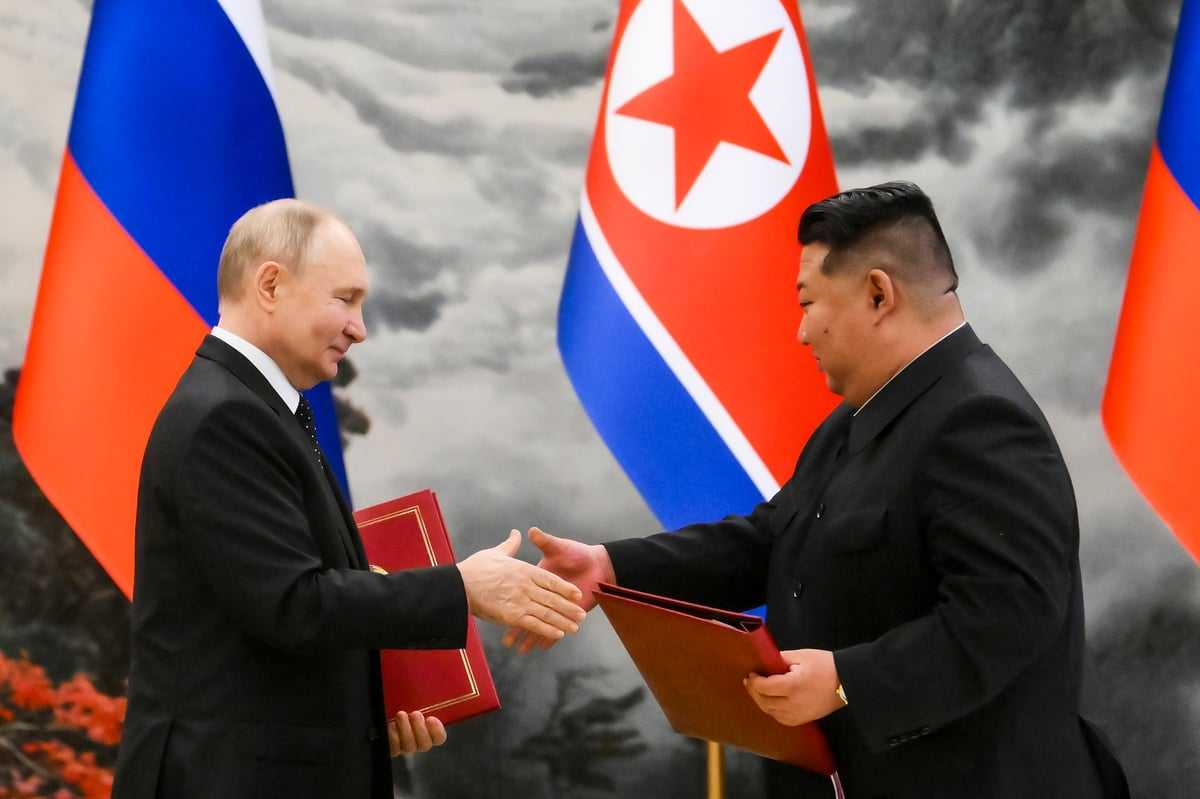World
US Concerned Over Russia-North Korea Pact as South Korea Considers New Arms Deal

The United States has expressed deep concerns over the recent pact between Russia and North Korea, raising alarms about the potential destabilization it could cause on the Korean peninsula. The pact, signed by Russian President Putin and North Korean Leader Kim Jong-un, includes provisions for immediate military assistance in case of an attack on either country, further escalating tensions in the region.
Matthew Miller, a spokesperson for the US State Department, highlighted the implications of Russia providing weapons to North Korea, noting that it could violate UN Security Council resolutions and disrupt the fragile peace on the Korean peninsula. US Secretary of State Antony Blinken and South Korea have both condemned the pact, considering it a serious threat to regional stability.
In response to the agreement, South Korea has considered arming Ukraine, triggering a strong reaction from the Russian ambassador, Georgy Zinoviev. The possibility of Seoul supplying arms to Ukraine has added to the growing tensions, with the Russian ambassador labeling such actions as unacceptable.
The situation becomes more complex as Russia and North Korea engage in reciprocal weapon supplies. Putin hinted at the possibility of arming North Korea in response to Western countries sending weapons to Ukraine, further fueling the arms race dynamics in the region. The US and South Korea have expressed concerns over the potential expansion of North Korea’s ballistic and nuclear missile programs through Russian assistance.
Amidst these developments, Nato Secretary-General Jens Stoltenberg voiced apprehensions about the ramifications of enhanced cooperation between Russia and North Korea. The Kremlin has signaled openness to dialogue with the US on security issues, although it remains committed to its military campaign in Ukraine.
Meanwhile, the US is extending diplomatic efforts in the region, with senior diplomat Daniel Kritenbrink visiting Vietnam to reinforce partnerships for a free and open Indo-Pacific region. The evolving dynamics among Russia, North Korea, South Korea, and their global allies continue to reshape geopolitical landscapes, raising concerns about future stability.












